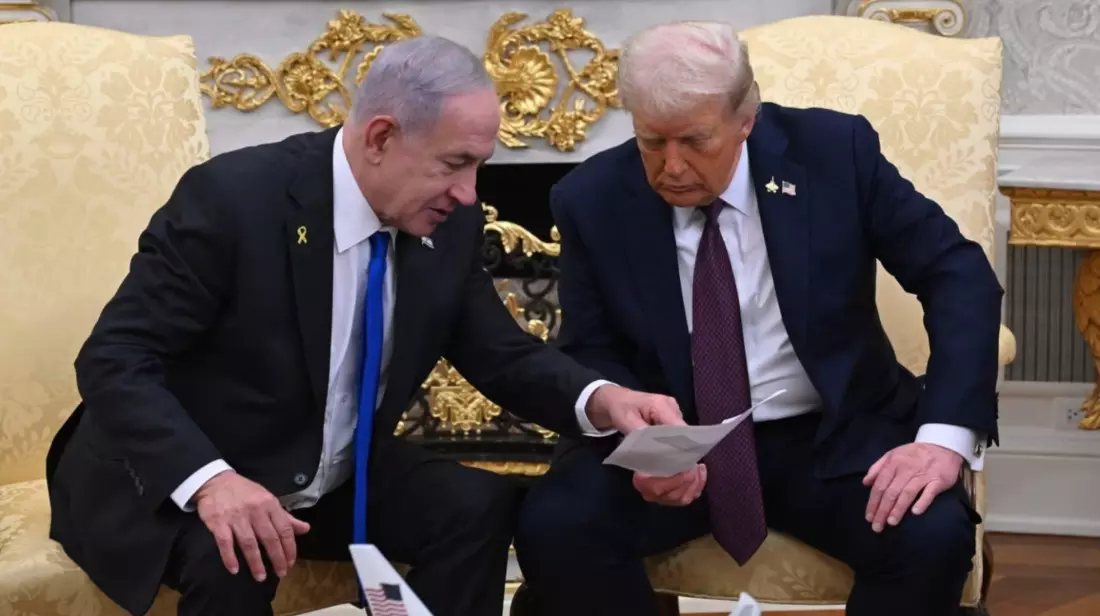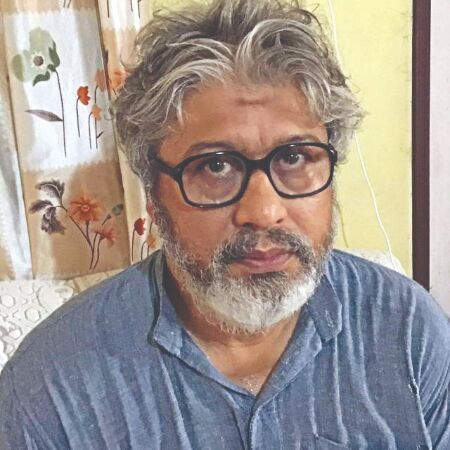A Peace Built Unequal
From asymmetry to hardline politics, Trump’s Gaza peace proposal raises doubts about its fairness, feasibility, and long-term stability

Amid news of the Global Sumud Flotilla nears Gaza’s “danger zone, carrying urgent medicine, food, and international volunteers in a bid to challenge Israel’s naval blockade, US President Donald Trump and Benjamin Netanyahu, the Israeli prime minister, met at the White House in Washington on Monday then held a joint press briefing in which they hailed their Gaza peace plan as a historic breakthrough and new chapter for the Middle East. Earlier, the White House released the 20-point plan aimed at ending the war in the Palestinian territory that erupted after the deadly attack on October 7, 2023. But it was evident that Hamas had not been consulted, and its position on the terms remained uncertain. Both Trump and Netanyahu made it clear that they were not offering Hamas a choice in the matter. If the group refused, Trump told reporters, “Israel would have my full backing to finish the job of destroying the threat of Hamas. The Plan calls for a ceasefire, a swap of hostages held by Hamas for Palestinian prisoners held by Israel, a staged Israeli withdrawal from the Palestinian territory, Hamas disarmament and a transitional government led by an international body. The plan also demands that Hamas lay down its arms and renounce governance in the strip. Hamas members who commit to peaceful coexistence would be given amnesty to remain in Gaza, or they would be granted safe passage to receiving countries.
Trump’s plan would also establish a temporary governing board that would be headed by Trump himself and include Tony Blair, the former British prime minister. Earlier, a leaked 21-page draft document, seen by the Guardian and Haaretz in Israel, showed that a post-war Gaza governing authority would sideline key Palestinian political figures while giving significant authority to its chair on most key issues, reports The Guardian.
Political analysts have flagged five major flaws in Trump’s Gaza peace plan:
* Lack of trust: There is zero confidence between Israel and Hamas, making implementation nearly impossible.
* Asymmetry: The plan heavily favours Israel and would leave Hamas entirely defenceless.
* Vague implementation: No details have been provided about the proposed “International Stabilisation Force” that would replace Israeli troops after withdrawal.
* West Bank omission: The plan ignores the West Bank, a central flashpoint that must figure in any lasting settlement.
* Internal opposition: Israel’s far-right ministers, Bezalel Smotrich and Itamar Ben-Gvir, reject any proposal short of Hamas’s total destruction.
Another contentious issue is the inclusion of Tony Blair on Trump’s temporary governing board. Blair, widely criticised for his role in the Iraq and Afghanistan wars, is viewed across the Arab world as a “war criminal.” His presence on the so-called “Board of Peace” has sparked anger and deep scepticism.
Despite the criticism, pro-US leaders in Europe and the Middle East have endorsed the plan. India’s Prime Minister Narendra Modi called it a comprehensive peace initiative, while the Palestinian Authority described Trump’s efforts as “sincere and determined,” according to the BBC.
Differences between the USA and Israel have already emerged on the basic issue of granting statehood to Palestine. In a video statement shortly after the peace plan, Netanyahu reinstated his longstanding opposition to a Palestinian state. “It’s not written in the agreement. We said we would strongly oppose a Palestinian state,” he said. He also said the peace plan would allow the Israel Defence Forces (IDF) to stay in Gaza - contrary to the text of the proposal published by the White House.
It may be recalled that since the outbreak of the Gaza war in October 2023, China has put forward proposals and taken action to address the Palestinian question. At China’s invitation, senior representatives of 14 Palestinian factions engaged in dialogue in Beijing in July 2024 and signed the Beijing Declaration on Ending Division and Strengthening Palestinian National Unity. The Beijing Dialogue was the most inclusive and in-depth reconciliation talks of 14 political factions to date. The important consensus from the Beijing talks is to achieve reconciliation and unity among the 14 factions. The core outcome was the affirmation of the Palestine Liberation Organisation (PLO) as the sole legitimate representative of all Palestinian people. The biggest highlight was the agreement on establishing an interim government of national reconciliation, focusing on the post-conflict reconstruction of Gaza. The strongest call was for establishing an independent State of Palestine in accordance with relevant United Nations resolutions. Mousa Abu Marzouk, head of the Hamas delegation to the Beijing Dialogue, declared Hamas’s readiness to implement the Beijing Declaration, strengthen unity among factions and advance the reconciliation process to achieve Palestinian national unity. But Beijing’s early assertive role appears to have diminished, and in its place, traditional Arab and American mediators have reclaimed the spotlight, forcing China to reassess its position amid an increasingly complex diplomatic landscape, observes The Diplomat.
China’s apparent reluctance to directly involve itself in the conflict may be because China does not have a significant role in this conflict. It lacks the capability for power projection in the region and is not a key player in the traditional security sense. China’s real competitive advantage in the Middle East lies in its economic relationships and, occasionally, in its ability to serve as a diplomatic bridge. According to the global think tank Chatham House, as in Ukraine, China is positioning itself as a peace-seeking, ‘neutral’ great power, in contrast to the US, whose committed support for Israel is depicted by Beijing as a destabilising, violent influence in the region. But China’s comments on the war, and its non-interventionist stance, mean it is unable to influence events – an uncomfortable position when the war directly threatens its interests. By stressing its neutral stance and its role as a voice of the Global South, China wants to check the US’s moral standing and legitimise internationalisation of the issue, calling for a global conference to initiate a peace process – thereby removing Washington
from its decades-long position as the unchallenged arbiter in the conflict. However, beyond the short term, China’s policy is flawed and unsustainable. Like the Ukraine war, the Israel–Hamas war shows that ambiguity and ‘anti-Western neutrality’ are complex acts. Neutrality also prevents China from directly influencing these dangerous events in a way that favours its interests.
In the absence of China’s serious involvement in restricting Israeli aggression, the future of Palestine in general and Gaza in particular looks bleak. Though a people’s movement against this unprecedented genocide is gaining support from common people and has compelled Israel and USA duo to come out with a half-baked Peace Plan to divert attention from the Global Simmud Flotilla (GSF) - a coordinated, nonviolent fleet of mostly small vessels of over 50 in number with thousands of civilian participants from more than 44 countries sailing from ports across the Mediterranean to break the illegal siege on Gaza by sea and open a humanitarian corridor to end the
on-going genocide of the Palestinian people, it’s an unequal battle between a few thousands of nonviolent armless human souls and the Zionist hawks armed with deadly weapons of mass destruction.
As the United Nations has miserable failed to safeguard the lives of millions of the people in the Global South, Colombia’s President Gustavo Petro called on the global south, during his recent speech before the United Nations’ General Assembly, to muster an international army to “liberate Palestine” and defend itself
against “tyranny and totalitarianism” promoted by the United States and NATO. If GSF fails to make any breakthrough using nonviolent means, then President Petro’s proposal is bound to receive serious attention from the Global South.
Views expressed are personal. The writer is a professor of Business Administration who primarily writes on political economy, global trade, and sustainable development



